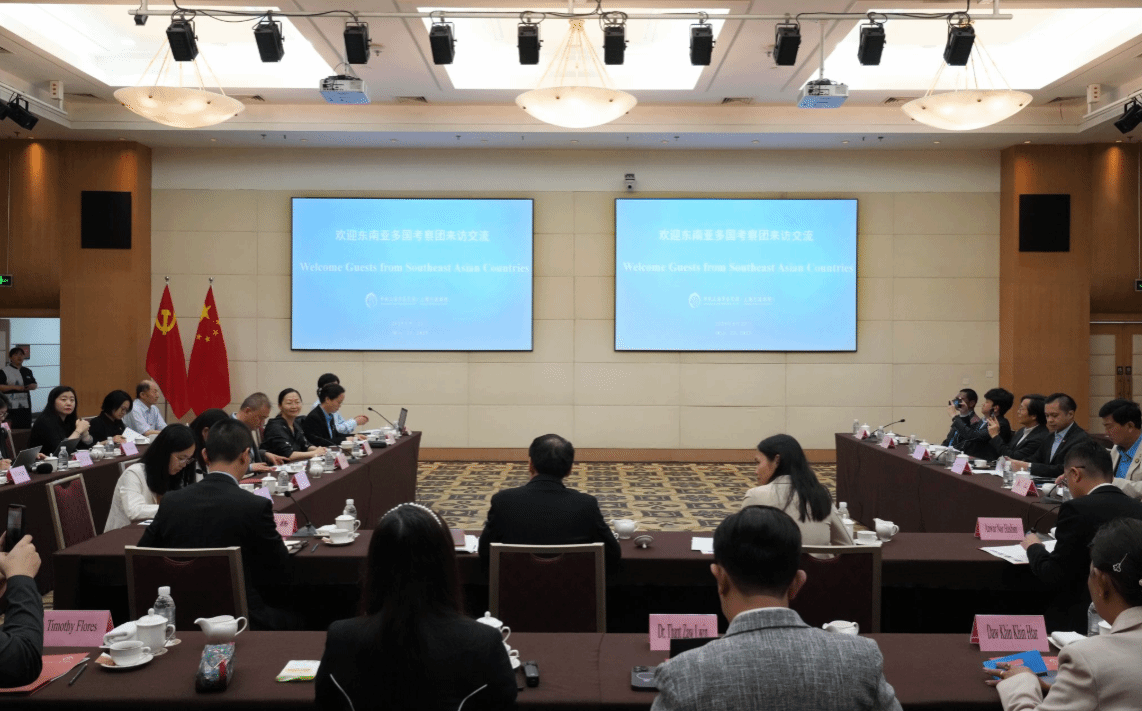Teo Nie Ching, National Vice Chairman of the Democratic Action Party and Deputy Minister of Communications of Malaysia, led a Southeast Asian multi-state delegation to visit SPI/SAI on May 23. This delegation was a group of political party dignitaries, academics and media representatives from Southeast Asian countries who are partners of the Belt and Road Initiative (BRI), including Malaysia, Brunei, Indonesia, Myanmar, the Philippines, Singapore, Thailand and Timor-Leste. LUO feng, Vice President of SPI/SAI, presided over the meeting and communication with the delegation.
Mr. LUO extended a warm welcome to the delegation. He briefed them on the basic information of SPI/SAI and reviewed our dealings with relevant organizations of the guests’ home countries, with a focus on our teaching and training, key disciplines, think tank development and international cooperation and exchange. He expected that all parties would take this visit as an opportunity to actively respond to President Xi Jinping’s call for building a community with a shared future among neighboring countries and increase exchange and mutual learning on governance experience and on the training of political party and government officials.

Teo expressed their gratitude for our warm reception. She gave full recognition to socialist democracy with Chinese characteristics and what education and training for CPC members and officials had achieved. She said that this visit offered useful takeaways for Malaysian ruling party’s preparation for creating a party school. The delegates expected further cooperation with SPI on political party building and officials training, among other domains.
Professor ZHAO Gangyin, Director of the Department of Political Party Building, briefed the delegation on the background, formulation, implementation, effectiveness and takeaways of the CPC central leadership’s eight-point decision on improving work conduct, which revolves around full and rigorous CPC self-governance. The guests had heated exchange on such topics as a political party’s institutional development, oversight and motivation mechanisms in the management of officials, and platforms and channels for international cooperation.
Other participants in this exchange included relevant colleagues from the International Department of the Central Committee of CPC, the Foreign Affairs Office of the Shanghai Municipal People’s Government, and SPI/SAI departments, including the Foreign Affairs Office, the Policy Advisory Department and the Department ofPoliticalParty Building. The participants said that they would make concerted efforts to create platforms for international cooperation and play a positive role in better telling China’s stories and making China’s voice heard in the world.